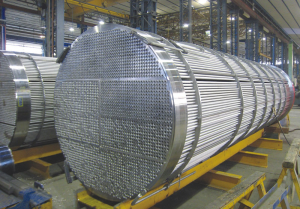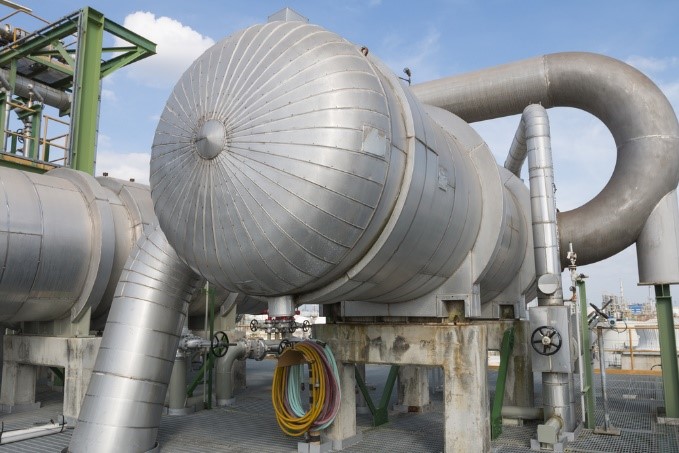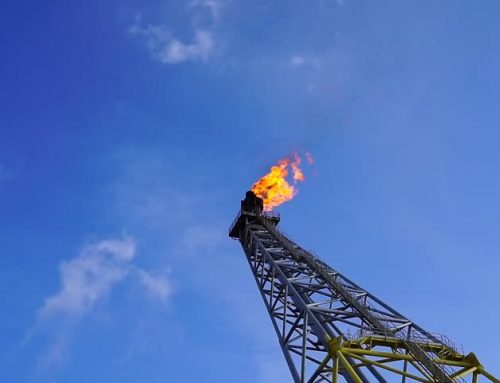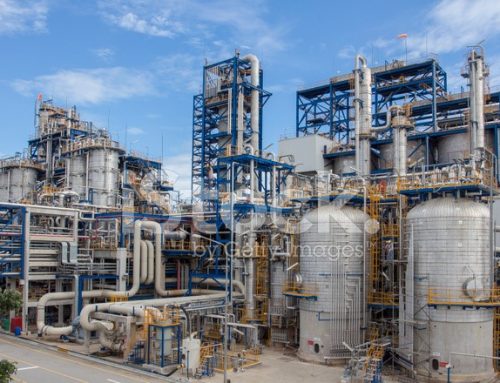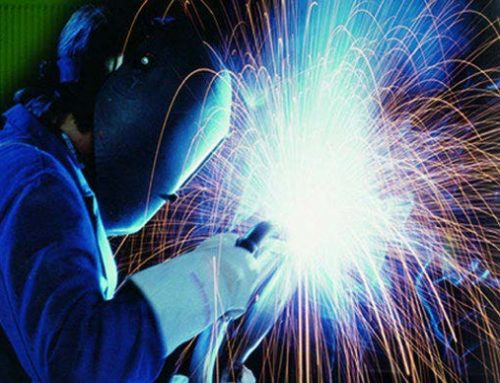Project Description
The design, performance and operation of modern heat exchangers require an understanding of the principles of heat transfer and fluid flow, coupled with access to mathematically based techniques and assisting data. This course will review heat transfer fundamentals as applied to tubular and plate devices. Included will be sessions on the practical aspects of shell and tube heat exchanger design with ASME and TEMA codes.
Furthermore this course provides an invaluable information in the various stages of fabrication for heat exchangers and especially the shell and tube ones. The course will also discuss the ways in which systematic techniques of inspection and maintenance can improve major problem areas.
Why attend
Upon completion of this course, delegates will gain an understanding of the basic principles of heat transfer and fluid flow and their application to the design, operation and maintenance of shell and tube heat exchangers as well as compact and air cooled heat exchangers. Participants will gain an understanding of TEMA and ASME codes and learn how to mathematically analyze the different heat exchanger configurations. Attention will be paid to the ASME and TEMA requirements in the fabrication of shell and tube heat exchangers as well as the presentation of real cases of existing heat exchangers from their design stage to their commissioning at the refinery. Finally inspection and maintenance issues will be addressed.
Course Objectives
By the end of the course, participants will be able to:
Distinguish the various types of heat exchangers and learn more of their industrial features and other relevant information.
Design, operate, inspect, maintain and repair heat exchangers and analyze their performance in a professional manner.
Learn the complete construction project curve, from the design board to the fabrication shop and finally the commissioning inside the plant.
Increase understanding of the practices and principles of heat exchanger maintenance and inspection techniques with its common inspection tools and codes.
Who should attend
This course provides a wide information and a thorough understanding of heat exchanger design, performance, inspection, maintenance and operation in various process industries. It’s an excellent program for project engineers, process engineers, plant and maintenance engineers and supervisors who seek systematic knowledge in the design and fabrication of these so important static equipment. The course is also useful to those generally knowledgeable on the subject, but who may require a refresher or update. No prior knowledge on the subject is required. Participants will be taken through an intensive primer of heat transfer principles as they apply to shell and tube heat exchangers.
Course Outline
- Conduction – Convection
- Overall Heat Transfer
- Logarithmic Temperature Differences
- Correction Factors
- Fouling – Effectiveness
- Double-Pipe
- Parallel-Flow and Counter-Flow
- Compact – Shell and Tube
- Plate and Frame
- Regenerative
- Condensers – Boilers
- Space Radiators – Addition of Fins
- Logarithmic Mean Temperature Difference Method – Effectiveness- NTU Method
- Counter Flow, Cross Flow and Multipass Heat Exchangers
- Application of Correction Factors
- Pre-heat Calculations – Energy Modeling
- Design of Shell and Tube Heat Exchangers – Common design software
- Course and Fine Filters
- General Points on Material Selection and Pressures
- Thermal Effectiveness
- Advantages and Disadvantages of Double-Pipe Arrangements and Scope of Application
- Common Materials Used
- Shell and Tube Heat Exchangers
- Plate and Frame Heat Exchangers
- Advantages and Disadvantages of these Types and Scopes of Application
- Scoping – Quick-sizing – Correction Factors – Estimation of the Overall Heat Transfer Coefficient – Estimating Cost – ESDU Data –
- Logarithmic Interpolation in Determining Heat Transfer Rate With and Without Effects of Fouling
- Effectiveness/NTU Method for Heat Exchanger Analysis
- Heat Transfer Effectiveness, Capacity Ratios
- Heat Exchanger Inspection – Scope –
- TEMA Standards and Terminologies
- Fluid Allocation
- Design Problems, Design Enhancement – Examples
- Accepting detailed engineering studies, drafting shell and tube heat exchangers
- Procuring and receiving parts and materials, Formation of materials, welding procedures
- Bundle assembly, Hydro testing, Third party inspections, sandblasting and lining.
- Transportation issues.
Fouling Control of Heat Exchanger
- Visual, NDT
- Common Failures
- Inspection Tools
- Inspection Codes
The workshop
This interactive training course includes the following training methodologies as presented on the next column based on percentage of the total tuition hours:
Lectures
Workshops & Work presentation
Case Studies & Practical Exercises
Videos, Sofware & General Discussion
The course instructor may modify the above training methodology before or during the course for technical reasons with no prior notice to participants.
Falcon Consulting Professionals is established in Greece for the last 15 years in the areas of technical consulting and professional training for the local industries. Falcon is expanding in GCC, aiming to provide the best consulting and training solutions to the industries of the region. Falcon’s instructors are accredited trainers and highly experienced in their fields, as well as adult training. We aspire to build our business relationships on mutual trust. The achievement of results with an emphasis on innovation and sustainability, quality, cost analysis and time scheduling are non-negotiable from the conceptual phase of the training.

